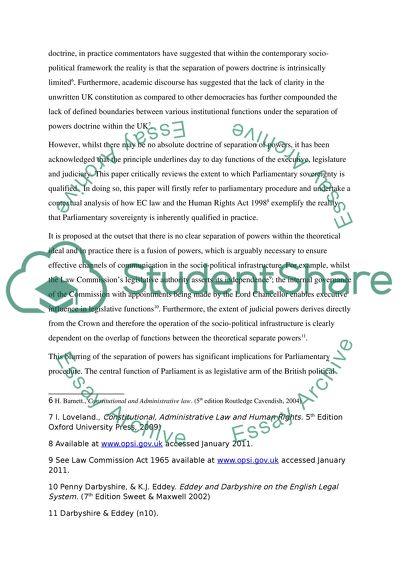Cite this document
(“Public Law - Parliamentary Sovereignty Essay Example | Topics and Well Written Essays - 1500 words”, n.d.)
Retrieved from https://studentshare.org/law/1404808-public-law-parliamentary-sovereignty
Retrieved from https://studentshare.org/law/1404808-public-law-parliamentary-sovereignty
(Public Law - Parliamentary Sovereignty Essay Example | Topics and Well Written Essays - 1500 Words)
https://studentshare.org/law/1404808-public-law-parliamentary-sovereignty.
https://studentshare.org/law/1404808-public-law-parliamentary-sovereignty.
“Public Law - Parliamentary Sovereignty Essay Example | Topics and Well Written Essays - 1500 Words”, n.d. https://studentshare.org/law/1404808-public-law-parliamentary-sovereignty.


